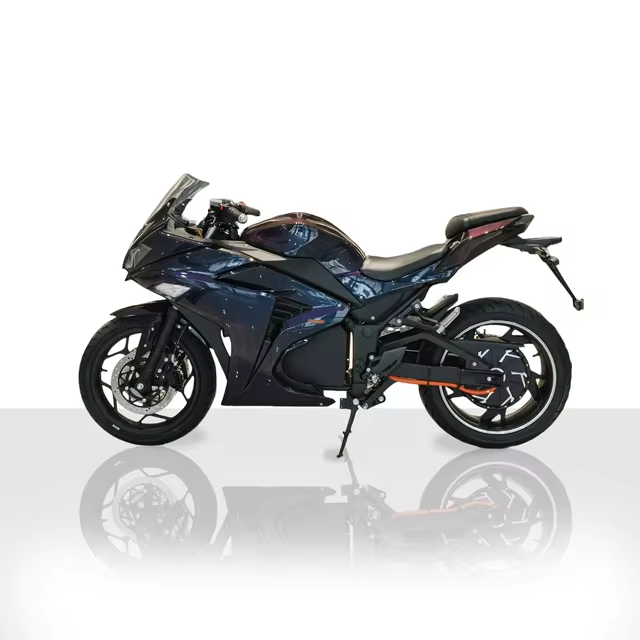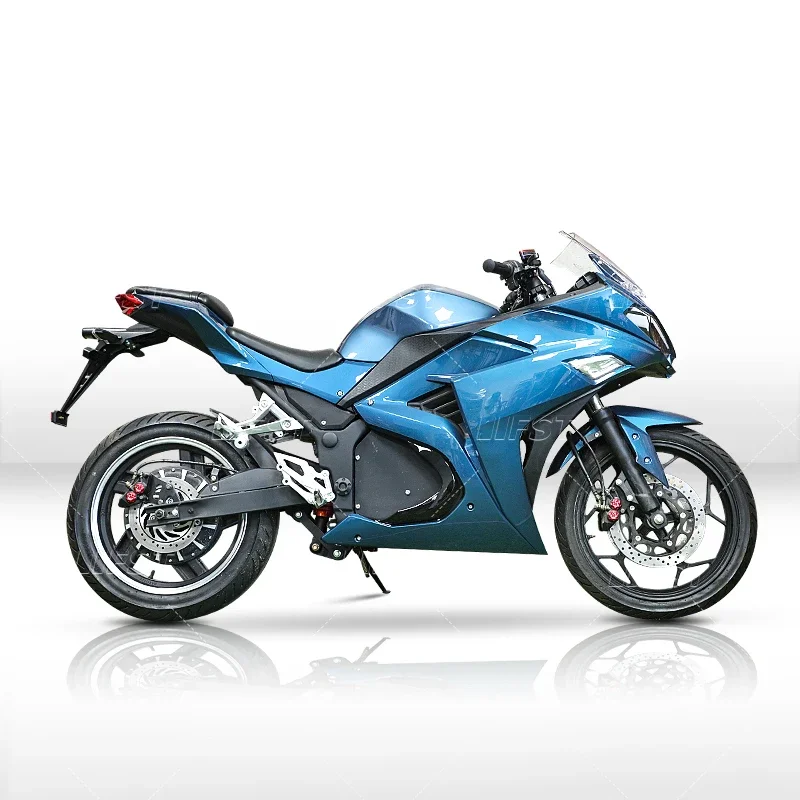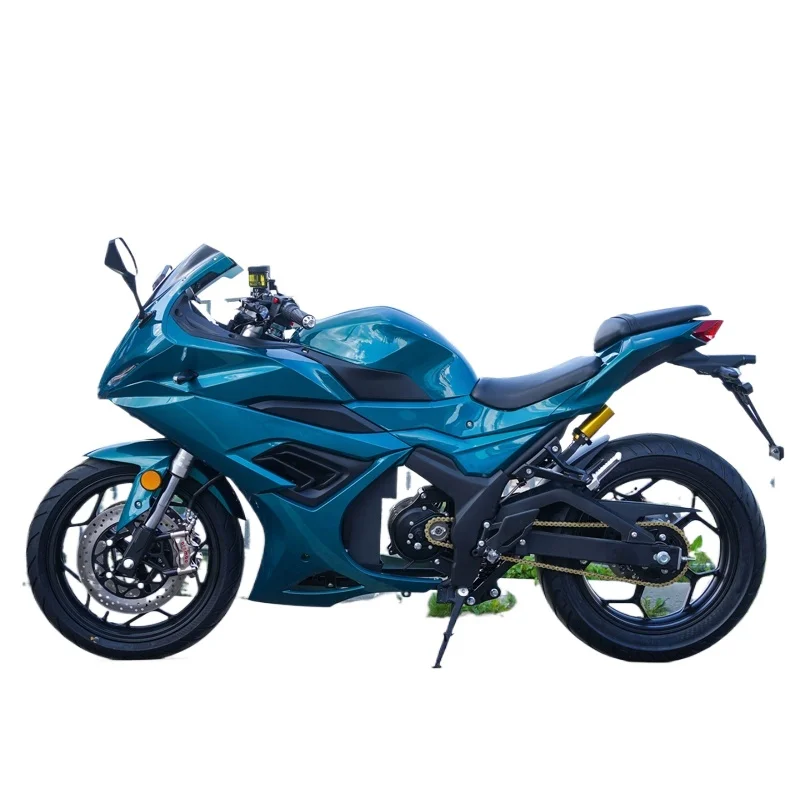Emerging Trends in Electric Mobility:
Suzuki Electric Motorcycle
The shift towards electric mobility is accelerating, and Suzuki is not sitting back. As the automotive and transportation industries face the urgent need to reduce carbon emissions, electric vehicles (EVs) have emerged as a critical trend. Companies globally are redirecting resources to develop electric-powered solutions, aiming for a future dominated by clean energy.

Suzuki recognizes this shift and is preparing to launch its first suzuki electric motorcycle during the financial year of 2024. This move into the electric two-wheeler market comes at a time when the demand for EVs is soaring, influenced by changing consumer preferences, technological advancements, and supportive government policies.
The trend is clear: to remain competitive and environmentally responsible, manufacturers like Suzuki are focusing on vehicles that leverage alternative power sources. These include not only electric motorcycles but also small mobility options, such as electric scooters, and battery electric cars. Suzuki’s commitment to this trend is evident in its plan to introduce eight electric motorcycle models by 2030, which will make up a significant portion of its portfolio.
Moreover, the push for sustainability in motorsports is influencing companies. As MotoGP moves towards partially non-fossil fuels by 2024 and fully non-fossil fuels by 2027, manufacturers including Suzuki must adapt their technologies accordingly. This trend sets a precedent, highlighting the importance of innovation and adaptability in the evolving landscape of electric mobility.
Suzuki’s Electric Two-Wheeler Plans for 2024
Suzuki has set its sights on launching its first electric motorcycle in the 2024 financial year. This marks a pivotal step in the company’s journey towards electric mobility. The focus is on small to mid-capacity bikes, often referred to as commuter class models. These motorcycles are designed for everyday use, offering an eco-friendly alternative to traditional fossil fuel-powered bikes.
For riders, this transition means access to greener transportation options. Suzuki’s inaugural electric two-wheeler will pave the way for a broader lineup. By moving into the electric market, Suzuki addresses the growing demand for energy-efficient and cleaner modes of transport.
The move aligns with global automotive trends. It shows Suzuki’s responsiveness to the need for reducing carbon footprint. It also demonstrates a commitment to sustainable practices within the industry. Suzuki’s plans don’t just stop at one model. The company envisions a total of eight electric motorcycle models by 2030. These models will represent a significant 25% of Suzuki’s motorcycle product range.
This strategy mirrors the actions of other manufacturers. They are reshaping their offerings to meet the expectations of a climate-conscious consumer base. Interestingly, the plans for Suzuki’s electric motorcycle coincide with MotoGP’s shift to part-non-fossil fuels starting from 2024. These corridors of motor sports increasingly influence the direction of motorcycle technology and sustainability.
In preparing for the launch, Suzuki is likely optimizing its design and manufacturing processes. They aim to deliver vehicles that are not only environmentally friendly but also reliable and performance-oriented. As consumer anticipation builds, the electric two-wheeler from Suzuki will surely be a significant addition to the evolving landscape of electric vehicles.
Expanding Suzuki’s Electric Vehicle Lineup by 2030
Suzuki is deepening its electric footprint. By 2030, eight electric motorcycle models will join the fleet. This ambitious plan steers Suzuki towards a sustainable future. The lineup will exemplify diversity, catering to varied rider preferences.
The initiative positions Suzuki at the forefront of the electric revolution. They aim to electrify 25% of their motorcycle catalog. Suzuki’s move reflects a commitment to clean energy and innovation. Consumers desiring eco-friendly options will find a Suzuki to meet their needs.
Aside from two-wheelers, Suzuki is broadening its electric reach. Electric scooters and battery-powered cars are on the horizon. These vehicles highlight Suzuki’s holistic approach to electric mobility.
Suzuki’s venture extends to leisure bikes as well. They explore carbon-neutral fuels for these models. This ensures Suzuki’s legacy models transition smoothly into a greener era.
The company is not just shaping the future of transport. It’s redefining the relationship between motorcycles and the environment. That’s Suzuki’s pledge: sustainable, diverse, and innovative mobility by 2030.
 Leisure Motorcycles: Alternative Carbon Neutral Fuels
Leisure Motorcycles: Alternative Carbon Neutral Fuels
Suzuki acknowledges the appeal of leisure motorcycles. These bikes are often associated with performance and pleasure. As Suzuki ventures into the electric market, they are not overlooking this segment. The brand is exploring alternative carbon neutral fuels for these leisure bikes. Such initiatives reflect an awareness of varying customer preferences and use cases.
The pursuit of carbon neutrality in leisure motorcycles involves research and development. Suzuki’s aim is to adapt them to sustainable fuels. These fuels help reduce the carbon footprint while maintaining bike performance. Riders can enjoy their rides with a lesser environmental impact. This approach complements Suzuki’s electric motorcycle plans.
For example, MotoGP’s transition to greener fuels is an influence. Suzuki is considering similar strategies for its leisure models. The company seeks to balance enjoyment with eco-friendliness. Suzuki is investing in technology to use non-fossil fuels. Potential fuel options being explored include CNG, biogas, and ethanol mixes.
Such advancements in fuel technology are crucial. They provide an interim solution until electric advancements mature. This demonstrates Suzuki’s comprehensive approach to sustainability. It extends beyond their imminent electric motorcycles. Everything is being considered, from commuter bikes to high-performance machines.
We can expect to see further innovation as Suzuki prepares for 2030. They will target a blend of electric bikes and alternative fuel options. Through this strategy, Suzuki upholds its commitment to greener solutions for all riders.
Initiatives in Electric Mobility Beyond Motorcycles
Suzuki’s ambition in electric mobility transcends the motorcycle industry. The company has outlined plans to diversify into other areas of electric transportation. This includes smaller mobility options such as electric scooters, designed for urban commuting and convenience. Additionally, Suzuki is looking at the bigger picture with battery electric vehicles (BEVs) for the automotive market, embracing a broader vision for sustainability.
The transition to electric mobility is a step towards reducing the environmental impact of transportation. Suzuki recognizes that electric scooters and BEVs play a critical role in decreasing urban pollution and providing cleaner travel alternatives. Taking this proactive approach, the company is gearing up to roll out battery electric four-wheeled vehicles in the 2024 financial year.
Furthermore, Suzuki is also considering the marine sector with plans for battery electric outboard motors. This move signifies an understanding of the importance of clean energy solutions across various modes of transport, not just on land.
Investments in technology are being made to support these initiatives. A significant portion of the budget is allocated towards electrification-related advancements. Suzuki demonstrates a dedicated approach to offering diverse electric products, highlighting the interconnectivity between different forms of mobility and the common goal of achieving a greener future.
In conclusion, Suzuki’s initiatives in electric mobility are comprehensive. They extend beyond motorcycles to encompass a wide range of vehicles, thus catering to a broader consumer base and environmental needs. These efforts showcase Suzuki’s commitment to paving the way for an electrified transportation landscape, with a sustainable vision that reaches all corners of mobility.
Advances in Suzuki Manufacturing for Carbon Neutrality
Suzuki is paving the way towards a sustainable future in manufacturing. The company has taken significant steps to reduce the carbon footprint of their production processes. As a key part of their strategy for carbon neutrality, Suzuki introduced the ‘Suzuki Smart Factory Creation’. This initiative combines traditional manufacturing values with cutting-edge digital technology. The goal is to create a more efficient, less energy-intensive production method.
One focus area is the optimization of their largest production plant in Kosai, Japan. Here, Suzuki ups renewable energy usage in paint facilities to 30%. They also work on increasing the efficiency of their existing equipment. The Kosai plant even produces its own green hydrogen, now in use at their fuel cell transporter.
New advancements include adopting cleaner energy sources in the Hamamatsu factory, which is the hub for suzuki electric motorcycle production. Suzuki expanded its solar power generation capacity there with the aim of achieving carbon neutrality by 2027. This will be a model for all Suzuki plants in Japan to follow suit by 2035.
The integration of green practices in manufacturing is just part of Suzuki’s broader commitment to the environment. By investing heavily in this area, Suzuki is securing its position as a leader in eco-friendly production. Their dedication to minimizing the environmental impact of their operations plays a crucial role in the transition to an electrified, carbon-neutral future.
 Investment in Sustainability and Electrification
Investment in Sustainability and Electrification
Suzuki is taking bold steps in their commitment to sustainability. Investment is key, and Suzuki demonstrates this by allocating a substantial budget towards electrification. With an investment of approximately 4.5 trillion Yen by the fiscal year 2030, Suzuki is taking its environmental responsibilities seriously. Of this massive sum, 2 trillion Yen is directed to electrification-related investments, a clear sign of Suzuki’s commitment to a greener future.
The funds will fuel Suzuki’s electric ventures, from suzuki electric motorcycles to cars and beyond. The push for electric mobility demands hefty financial backing. Suzuki’s investment will support research, development, and the introduction of new technologies. It aims to create electric two-wheelers and four-wheel vehicles that meet both performance and environmental standards.
Moreover, the investment spreads across Suzuki’s operations. It touches on advanced manufacturing processes and renewable energy initiatives. For instance, the Kosai plant’s renewable energy efforts and the ‘Suzuki Smart Factory Creation’ are prime examples of this strategy. These reflect Suzuki’s intention to not just produce electric vehicles but also to do so in an eco-friendly manner.
In conclusion, Suzuki’s investment strategy signposts a dedication to the future of electric mobility. This encapsulates Suzuki’s vision for a more sustainable, clean-energy powered world. It resonates with global environmental goals and consumer demand for responsible manufacturing. Suzuki is investing not just in vehicles, but in the planet’s future, setting a course for the industry to follow.
Suzuki’s Commitment to Renewable Energy in Production Facilities
Suzuki is stepping up its sustainable production game. The mighty switch to renewable energy drives this change. The company has started to reinvent its major production facilities, integrating eco-friendly practices.
In Suzuki’s Kosai plant, renewable energy forms 30% of the power for painting operations. This leap towards sustainability not only cuts down emissions but also enhances efficiency. Additionally, the plant taps into ‘green’ hydrogen, proudly produced onsite, pioneering a cycle of clean energy usage.
The push doesn’t stop there. Over at the Hamamatsu plant, the core of Suzuki electric motorcycle creation, solar power capacity is surging. This expansion not only aligns with sustainability targets but also sets a standard for others to follow. By 2027, Hamamatsu aims to go completely carbon neutral. That’s three years ahead of the initial 2030 target!
What’s impressive is the ripple effect. The renewable energy initiatives in Hamamatsu provide a blueprint for all domestic Suzuki plants. The vision is clear: achieve carbon neutrality across all Japanese plants by 2035, setting a new benchmark in manufacturing.
Suzuki’s dedication reflects in every step it takes towards a cleaner future. By integrating renewable energy sources in production, Suzuki honors its environmental pledge. The focus is on the long-term impact, carving out a path for sustainable practices across the industry. s the electric motorcycle market readies for Suzuki’s entry, the stage is set for a greener, more responsible manufacturing era.
